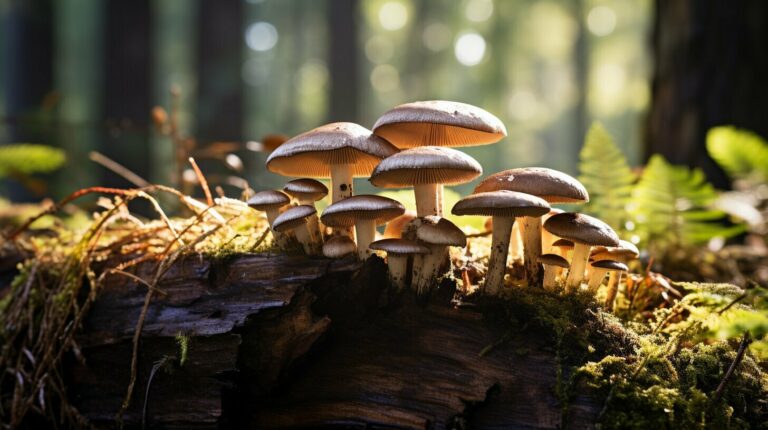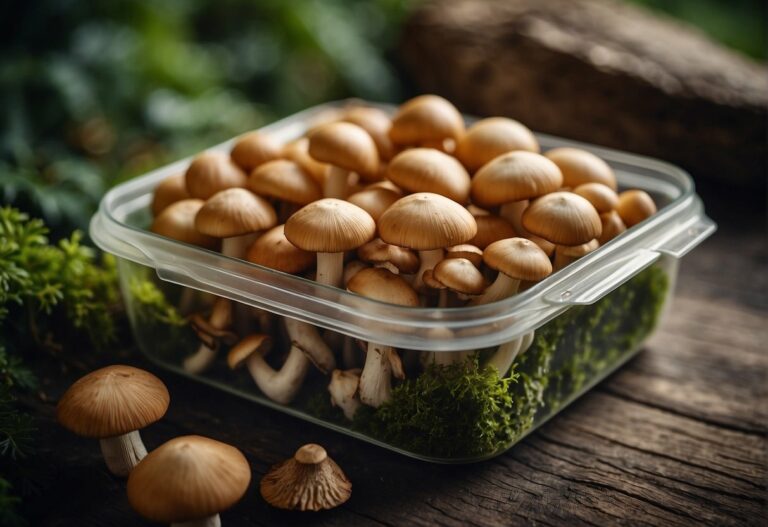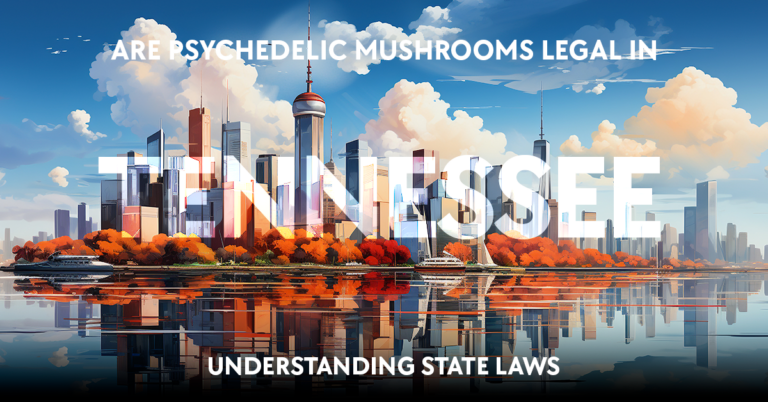Psychedelic mushrooms, also known as psilocybin mushrooms, have a complex legal status in the United States, and you may be curious about the specifics in New York. Although there’s been a national movement to reconsider the legal restrictions on these substances, as of the current date, psychedelic mushrooms remain illegal in New York under both federal and state law. They are classified as Schedule I drugs, meaning they are deemed to have a high potential for abuse and no accepted medical use.
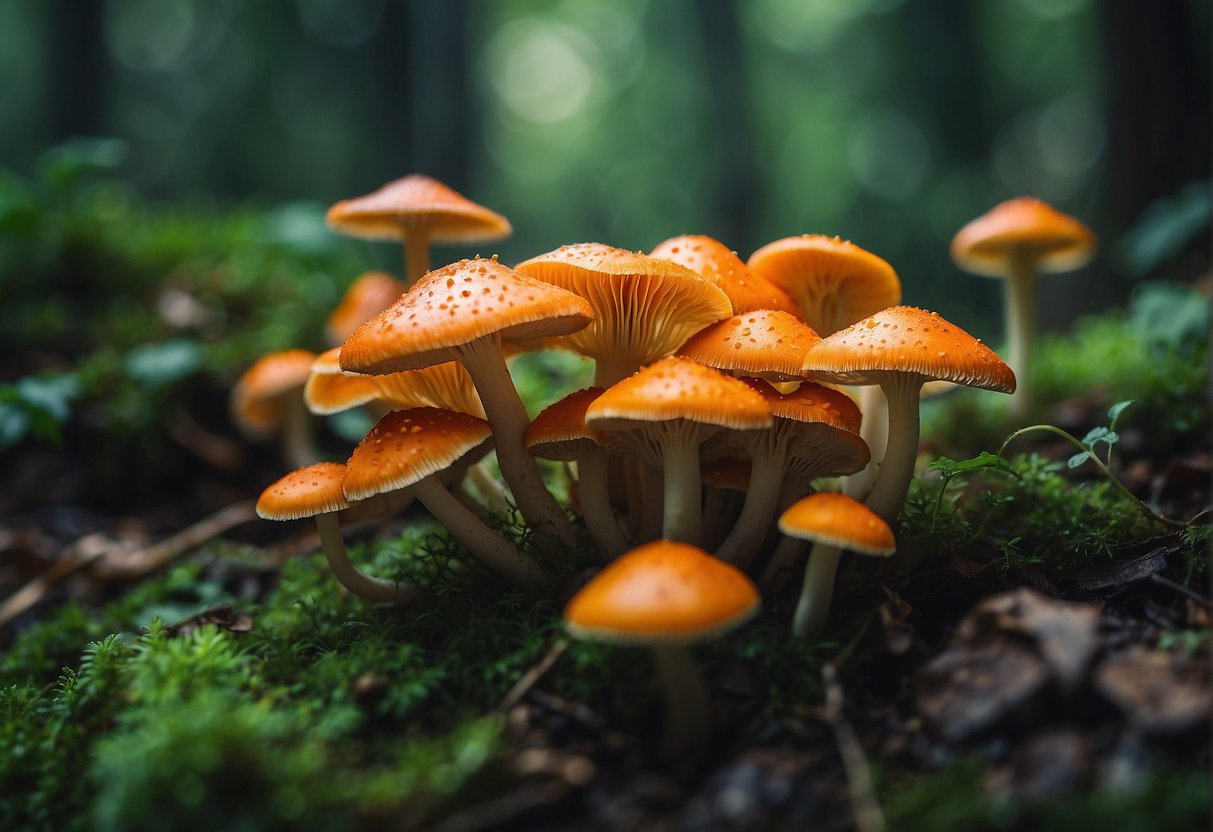
However, discussions and efforts to change these regulations are ongoing. Some lawmakers in New York are exploring the possibility of legalizing or decriminalizing psilocybin, following examples from other jurisdictions that have eased restrictions for either therapeutic uses or personal possession. In New York, these reform initiatives reflect a growing awareness of potential therapeutic benefits and a reevaluation of prior drug policies.
While the legality of psychedelic mushrooms remains unchanged in New York for the time being, it’s important to stay informed, as the legal landscape could shift due to legislative efforts and public opinion. For personal use, cultivation, or distribution, the current laws prohibit these activities and they carry potential legal consequences.
Legality of Psychedelic Mushrooms in New York
Table of Contents
https://www.youtube.com/watch?v=VqD7ZOF7Qm8&embed=true
In the State of New York, psychedelic mushrooms, which contain psilocybin, currently fall under the classification of Schedule 1 controlled substances. This categorization implies that psilocybin has a high potential for abuse, with no recognized medical use, thereby making its possession and sale illegal.
If you are found in possession of psychedelic mushrooms, you can face serious penalties depending on the amount and your intent (personal use vs distribution). New York State law imposes varying degrees of misdemeanor or felony charges, which could lead to fines or imprisonment.
Decriminalization efforts have emerged over the years, aiming to reduce the consequences associated with psychedelic mushrooms. While there’s been push for policy reform, as of now, these substances remain illegal in New York. Law enforcement officers may arrest individuals found with psychedelic mushrooms.
The table below summarizes the current legal stance:
| Status | Psilocybin |
|---|---|
| Legal Classification | Schedule 1 Controlled Substance |
| Possession | Illegal, with potential for arrest and prosecution |
| Decriminalization | No decriminalization or legal use recognized |
In discussions about legality, it’s important you remain aware that law enforcement takes the current legislation seriously, and any interaction involving psychedelic mushrooms could entail legal risks. As the legal landscape evolves, staying informed about any changes to the laws regarding psychedelic mushrooms in New York is crucial. Be mindful that while other regions may have altered their stance on psilocybin, those changes do not apply within the jurisdiction of New York State.
Historical Context and Recent Changes
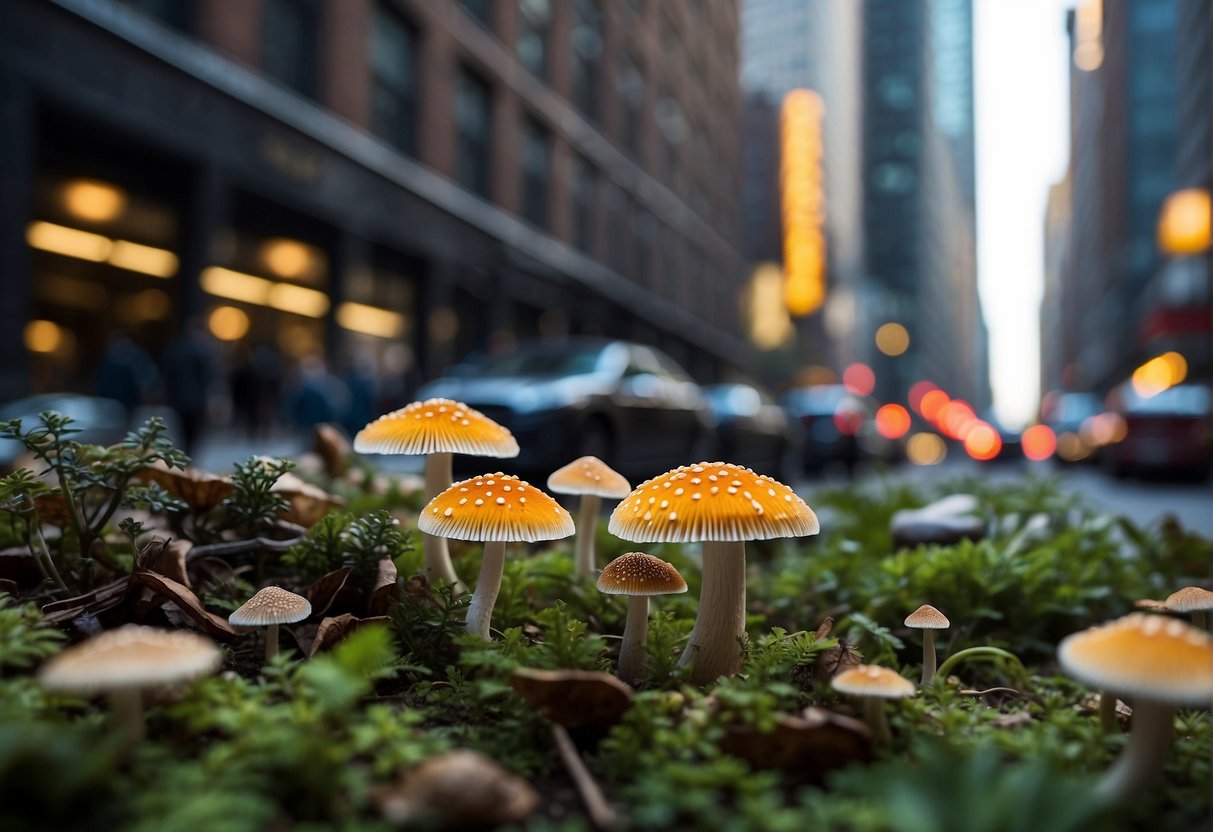
Psychedelic mushrooms have undergone significant shifts in legal status, particularly with progressive movements in certain states. Your understanding of these changes is crucial, especially regarding decriminalization efforts and legislation in places like New York.
Comparative Legality
Historically, psychedelics, including psilocybin-containing mushrooms, have been illegal under federal law. However, states like Oregon and Colorado have initiated changes, making strides towards decriminalization. Oregon, for instance, has legalized psychedelics for therapeutic use under controlled settings. Similarly, Colorado has passed legislation that loosens the restrictions on possession of psychedelics, reflecting a broader trend that mirrors the gradual legalization of marijuana.
In Canada, there is an ongoing conversation about decriminalization, which could potentially influence lawmaking trends in the United States. The informational site Marijuana Moment tracks such legislative efforts and changes in psychedelic legalization. In the realm of scholarly research, the transformation of psychedelic drugs from banned substances to potential therapeutic agents has drawn significant attention.
New York Legislation Efforts
Turning your focus to New York, recent legislative efforts have aimed to reform the state’s stance on psychedelics. Assemblymembers Jo Anne Simon and Karines Reyes have been at the forefront of these initiatives. They are joined by Linda Rosenthal, another proactive figure in New York’s assembly, in pushing for policy changes. Their goal is shifting the legal landscape to treat psychedelics differently, drawing on the successes and lessons from marijuana decriminalization.
These legislation efforts could position New York as a leading state in the decriminalization of psychedelics. It’s a progressive move that would align with the trajectory seen in other regions, indicative of a more general shift in how society and the law view substances like marijuana and psychedelics within the context of public health and criminal justice.
Medical and Therapeutic Use of Psychedelics
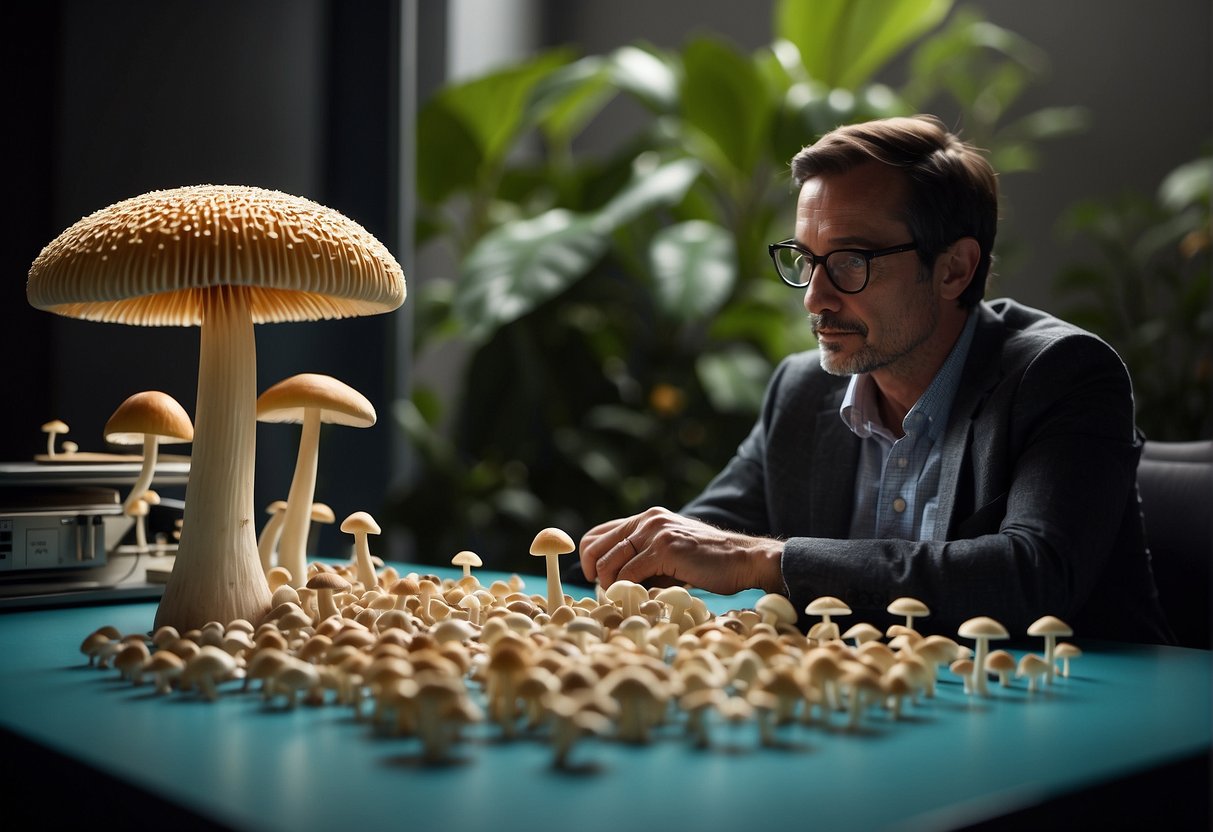
Exploring the landscape of psychedelics, you’ll find growing interest in their potential to treat mental health conditions. Psilocybin, the active compound in psychedelic mushrooms, plays a central role in this emerging field.
Depression and Mental Health
Clinical trials have demonstrated that psilocybin therapy can be a powerful tool in treating treatment-resistant depression. Researchers are investigating its effects not only on depression but also on PTSD (Post-traumatic Stress Disorder) and anxiety, providing new hope where traditional treatments may have fallen short. In controlled settings, psilocybin has shown the ability to create profound changes in mood and outlook, which could be instrumental for your mental wellbeing.
FDA Stance and Research
The FDA has recognized the significance of psilocybin as a potential breakthrough therapy. This distinction is granted when preliminary clinical evidence suggests the compound may offer substantial advantages over existing options for serious or life-threatening diseases. While the legal status of psilocybin remains complex, FDA-approved research is paving the way for its integration into therapeutic contexts, reflecting a shift towards acceptance of its medicinal use. Your understanding of this relationship between psychedelic research and governmental regulations may evolve as studies continue to unlock the potential of psilocybin in mental health conditions.
Criminal Penalties and Social Issues
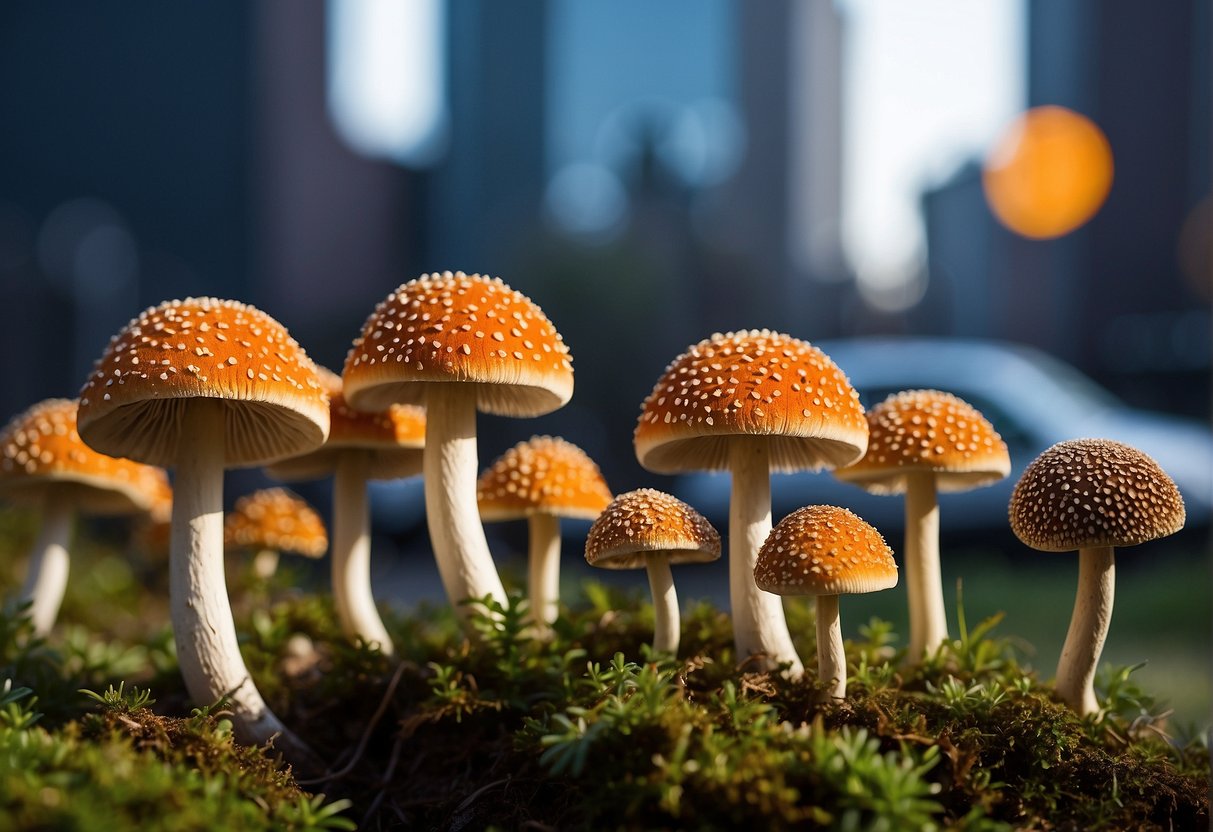
When you consider the legality of psychedelic mushrooms in New York, it’s important to understand the criminal penalties and social issues associated with their illegal status. Possession of psilocybin mushrooms, often referred to as magic mushrooms, is against state and federal laws. This means that if you’re caught with these substances, you may face legal repercussions.
Criminal Penalties:
- Possession: Being found with psychedelic mushrooms can lead to charges of possession. Depending on the amount, this could range from a misdemeanor to a felony charge.
- Prison: Felony charges can result in serious prison sentences, sometimes spanning several years.
- Fines: Alongside prison sentences, hefty fines may be levied, potentially amounting to thousands of dollars.
Law Enforcement:
- Law enforcement agencies in New York actively enforce drug laws, including those pertaining to psychedelic mushrooms. Engaging with these substances can lead to encounters with police and the criminal justice system.
Social Issues:
- Stigma: The illegal status of psychedelic mushrooms contributes to social stigma, often labeling users as lawbreakers.
- Public Health: Authorities argue that the criminalization of psilocybin mushrooms is necessary to safeguard public health. However, recent studies and movements suggest potential therapeutic benefits, raising debates over current drug laws.
Remember, while there’s growing discourse on the therapeutic use of psychedelics, your actions regarding psilocybin mushrooms are bound by current legal frameworks. Stay informed about the laws to navigate effectively within these parameters.
Potential Benefits and Risks of Psychedelics
When exploring the use of psychedelics like psilocybin mushrooms, it’s crucial to understand their potential impact on mental health and substance abuse. These compounds have been associated with both medicinal use in therapy and recreational activities.
Addiction and Substance Abuse
Psychedelics are considered to have a low potential for addiction. Research suggests that substances like psilocybin may even help in treating addiction. For example, psilocybin therapy has been studied for its potential to assist in overcoming alcohol dependence, indicating a possible role in addressing substance abuse disorders. Recreational use, however, remains a legal and safety concern, as psilocybin is still listed as a controlled substance in many regions.
Psychological and Physical Effects
The effects of psychedelics on your mental health can be profound. In a therapeutic setting, psilocybin has shown promise in reducing symptoms of depression and improving overall mental well-being. There’s growing interest in the spiritual and medicinal aspects of these compounds. Nevertheless, the use of psychedelics can lead to adverse psychological reactions, particularly if misused or taken outside of a controlled environment. Effects can range from anxiety and panic to perceptual disturbances, underscoring the importance of a supportive setting for those undergoing psychedelic-assisted therapy.
Public Perception and Cultural Impact
The cultural landscape surrounding the use of psychedelic mushrooms, often colloquially referred to as “magic mushrooms,” features a blend of spiritual, cultural, and recreational facets that contribute to the wider public opinion in New York. Historically associated with spiritual enlightenment and traditional ceremonies, these psychedelics have been reframed in modern times as substances that can profoundly affect consciousness, leading to a resurgence in both scientific interest and public curiosity.
-
Spiritual Use: Psychedelics, including psilocybin, have long been utilized in spiritual contexts, believed to facilitate deep personal insights and connections with the world.
-
Cultural Significance: Mushroom use has been depicted in media and discussed as part of a wider countercultural movement, increasing public awareness and influencing opinions on their role in society.
-
Recreational Enjoyment: While their legal status remains controversial, some individuals advocate for their recreational use, citing transformative experiences and minimal physical harm.
Public opinion is divided, with some viewing these substances as potential tools for psychological well-being and others cautioning against trivializing their potency. A social and cultural history of the federal prohibition of psilocybin points to the complexity of this debate.
Discussions on public health and policy fuse with public opinion, emphasizing a need to balance the interest in psychedelics for their therapeutic potential with concerns about misuse. As research continues and conversations evolve, so does the impact of psychedelic mushrooms on New York’s cultural ethos.
Regulatory and Legal Framework
In New York, the legality of psychedelic mushrooms is primarily determined by federal classification and state enforcement practices. Psychedelic mushrooms contain psilocybin, a substance listed under Schedule I of the Controlled Substances Act.
Controlled Substances Act and Scheduling
Psilocybin, the psychoactive compound found in psychedelic mushrooms, is classified as a Schedule I controlled substance according to the Controlled Substances Act (CSA). This classification indicates that psilocybin is considered to have a high potential for abuse, no currently accepted medical use, and a lack of accepted safety for use under medical supervision. As a result, its manufacture, distribution, or possession is subject to significant penalties. Despite this, movements for reform and potential medicinal value have prompted discussions at various legislative levels regarding the rescheduling of psilocybin.
Policy Enforcement and Legal Protections
Your interactions with law enforcement regarding psychedelic mushrooms in New York will be influenced by the legal status of these substances. Although the substance is illegal under federal law, local policies can differ. For instance, police and local law enforcement agencies may prioritize other concerns, thereby altering the practical enforcement of these regulations. However, you should know that without explicit protections such as those seen in decriminalized regions, possession or use of psychedelic mushrooms leaves you vulnerable to legal action. It is important to remain informed on the most current local laws and legal protections to navigate this evolving landscape.
Ongoing Research and Future Prospects
In New York, the legal landscape surrounding psychedelic mushrooms is evolving, reflecting a broader national reconsideration of their potential medical benefits. Your understanding of this issue is aided by knowing the current state of research and what may lie ahead.
Ongoing Studies:
- Research in Psychiatry: Studies have demonstrated that psilocybin, the active compound in psychedelic mushrooms, shows promise in treating various mental health conditions.
- FDA Involvement: The Food and Drug Administration (FDA) has designated psilocybin as a “Breakthrough Therapy” for depression, accelerating the development and review of psilocybin for therapeutic use.
Researchers’ Role:
- Clinical Trials: Researchers are conducting rigorous clinical trials to ensure safe and effective use of psychedelics in therapeutic settings.
- Expanding Knowledge: Research efforts aim to expand the scientific understanding of psychedelic mushrooms, focusing on their mechanisms of action and potential health benefits.
Future Prospects:
- Possible Legality Changes: If ongoing studies yield positive results, there could be shifts in legal status, with potential medical applications being legally recognized.
- Therapeutic Applications: The therapeutic prospects of psychedelic mushrooms could grow, potentially offering new avenues for treating mental health issues.
You have a right to be informed about the advances in psychedelic research and their implications. This knowledge shapes expectations for how the medical community and lawmakers in New York and beyond may continue to approach psychedelic mushrooms.
Exploring Alternative Psychedelics
When considering the realm of alternative psychedelics, you will find a range of substances, both natural and synthetic, that have been used for their mind-altering effects. It’s important to be aware of their legal statuses, which can vary significantly.
Natural Psychedelics and their Status
Natural psychedelics, like psilocybin mushrooms and ayahuasca, contain compounds that can induce profound changes in perception, mood, and thought. Psilocybe species, for example, are a group of fungus-based hallucinogens that contain psilocybin, a substance of interest for its therapeutic potentials. However, despite growing debates around their benefits in psychedelic services, in many places, including New York, psilocybin mushrooms remain illegal.
Another natural plant hallucinogen, peyote, contains the psychoactive compound mescaline, which, similar to mushrooms, is classified as a Schedule I substance under federal law, indicating a high potential for abuse and no recognized medical use. Ibogaine, derived from the African iboga shrub, and DMT, found in various plants and also in ayahuasca brews, also fall within this category, each with distinct legal challenges and scientific inquiry surrounding their use.
Synthetic Psychedelics and Legal Perspective
Shifting to synthetic alternatives, substances like LSD (lysergic acid diethylamide), MDMA (commonly known as ecstasy), and ketamine have been synthesized for various reasons, ranging from psychotherapy to recreational use. LSD and MDMA are currently on the list of Schedule I controlled substances in the United States, making their manufacture, distribution, or possession without a DEA license illegal. However, ketamine stands out as it’s also used in medicine, primarily for anesthesia, and is legally available through prescription, though it’s regulated.
It’s crucial for you to understand that while each of these substances can have significant psychological effects, their legal status is heavily influenced by societal attitudes, risk profiles, and therapeutic potentials, which are continually being assessed as new research emerges.
Frequently Asked Questions
Understanding the legal landscape concerning psilocybin mushrooms in New York is essential for staying informed about the regulations that affect their use and possession.
What is the current legal status of psilocybin mushrooms in New York State?
As of today’s date, psilocybin mushrooms remain classified as a Schedule I controlled substance in New York State. This classification means that they are considered to have a high potential for abuse and are not accepted for medical use.
Can individuals be prosecuted for possessing psychedelic mushrooms in New York?
Yes, individuals found in possession of psychedelic mushrooms in New York can face prosecution, as these substances are illegal under state and federal law.
Are there any active legislative efforts to decriminalize or legalize psilocybin mushrooms in New York?
There have been discussions and proposals by some lawmakers to decriminalize psilocybin mushrooms in New York, but as of yet, no laws have been enacted to change their current illegal status.
Under what conditions could one legally use psychedelic mushrooms in New York?
Currently, there are no legal provisions for the use of psychedelic mushrooms in New York State, except for authorized research studies conducted under strict regulations.
Has New York taken any steps towards medical research or therapeutic use of psilocybin mushrooms?
While there has been an increasing interest in the therapeutic potential of psychedelics, New York has not yet established any legal framework specifically for the medical research or therapeutic use of psilocybin mushrooms.
What are the potential legal consequences of distributing psychedelic mushrooms in New York?
Distributing psychedelic mushrooms in New York can result in serious legal consequences including fines and imprisonment, as it is considered a criminal activity to sell or distribute Schedule I controlled substances.


